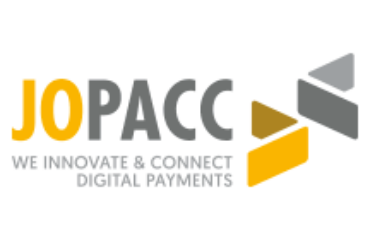
SMEs in the Gulf region have accelerated their digital transformations during the Covid-19 pandemic
t’s one year on since the pandemic, and small and medium-sized enterprise (SME) owners in the Gulf region face a transformed economic landscape.
In these uncertain times, company owners are turning to technology to keep their firms afloat and resilient.
SMEs make up more than 98% of companies in the United Arab Emirates (UAE) and contribute more than 52% to GDP, according to government data. In Saudi Arabia, SMEs comprise 99% of businesses, providing 64% of total employment in the country.
Smaller businesses across the board were hit hard by the pandemic, compared to larger companies which were better financially and strategically insulated against the crisis, said experts.
“Small businesses that weren’t digitally ready were heavily affected and many went out of business,” said Alaa Khattab, director of consulting and technology services at Abu Dhabi-based software consultancy Technology Strategies Middle East (TSME).
Khattab has witnessed a surge in demand from SMEs looking to harness digital technologies to enable company-wide resilience.
“Local SMEs are beginning to develop overarching digitisation strategies in varying degrees. Moreover, they have realised that built-in digital resilience is imperative, and modernising processes and operations to increase efficiency is now necessary,” Khattab added.
According to Harish Dunakhe, IDC research director for software and cloud for the Middle East, Turkey and Africa, the pandemic shook every Gulf-based organisation regardless of size and the sector, but Covid-19 was “particularly devastating” for SMEs.
“A digital infrastructure that supports remote operations and digital business models is a must-have for SMEs in the ‘new normal’. This is particularly significant for organisations in the trade value chain – manufacturing, logistics, wholesale and retail sectors – where most Gulf-based SMEs sit,” said Dunakhe.
Severe operational disruptions have forced SMEs in trade value chain sectors to respond quickly by increasing efficiency, embracing digital business models, creating new partnerships, developing new revenue streams and containing costs, he said.
“Resiliency has become the keyword, with optimisation and visibility the key overarching focus points,” said Dunakhe.
He added that SMEs should focus their digital initiatives on enabling remote working through collaboration tools, building scalable and resilient IT systems by investing in cyber security and cloud, and improving supply chain visibility through emerging technology, such as the internet of things (IoT) and analytics.
According to Khattab, TSME has witnessed local demand in particular for platforms that focus on robotic process automation (RPA), chatbots, artificial intelligence (AI), integration servers and application programming interface (API) management platforms.
“Technologies such as automation, machine learning, analytics and remote collaboration, along with rise of cloud, empower SMEs to bring innovative solutions to improvise operational efficiencies and facilitate remote operations,” said Vishal Manchanda, regional business development manager at Saudi Arabia-based digital consultancy Proven Consult.
“Most repetitive, manual and data-intensive tasks can now be completely automated without the need for human intervention, hence making sure basic operations run non-stop irrespective of a pandemic,” he said. “Local SMEs have realised they require a robust infrastructure setup for these systems to keep running with no interventions.”
Digital commerce adoption
Recent research from IDC shows that digital commerce, customer relationship management (CRM), and cloud-based analytics solutions saw accelerated adoption in 2020 among regional SMEs.
“SMEs used digital commerce to improve their order acceptance, overall delivery efficiency and integration with supplier portals,” said Dunakhe. “In addition to large retail chains in the Gulf, many mid-size retailers saw a surge in orders placed using mobile apps.”
According to Wes Schwalje, COO of Dubai-based research firm Tahseen Consulting, a large proportion of Gulf-SMEs in pre-pandemic times viewed digital transformation as a “nice-to-have” functionality.
“Lockdowns and protracted economic slowdown have forced SMEs to acknowledge that digital transformation is now a strategic imperative rather than a corporate buzzword,” he said, adding that the global crisis has presented regional SMEs with an opportunity to explore a range of technologies to build resilience.
“For example, SMEs have gone beyond simple video conferencing to look at virtual headquarters that mimic physical workspaces via solutions like Tocca. Social commerce via chat tools such as Businessonbot is now enabling local businesses to communicate with customers on WhatsApp,” he said.
“A whole range of B2B tools for enabling cornerstores to order inventory, sell online and explore embedded finance have emerged. Interest in micro-fulfillment and contactless payments technologies has also been accelerated significantly.”
In particular, Gulf-based SMEs in sectors reliant on online aggregators and physical distribution channels are now facing a “pivot-or-perish” moment, Schwalje said.
“There is an urgent need for SMEs, which have become over-reliant on aggregators for customer acquisition and fulfilment in the pandemic, to transition towards direct-to-consumer supply chain strategies,” the COO said.
He added that Chatfood in the restaurant space is an interesting example of an anti-aggregator technology that puts more control back into the hands of restaurants and stronger order economics.
Varying digital maturity
Despite a region-wide recognition of the urgent need to digitally transform, regional levels of maturity vary across the Gulf.
A recent IDC survey reveals that 41% of UAE organisations are facing silos of innovation, where departments compete with each other and drive innovation without having an enterprise-wide approach.
In Saudi Arabia, IDC reports that 38% of organisations have “limited capabilities” to drive their digital initiatives.
“The inability of organisations to capture and analyse data to derive actionable insights on time is the biggest impediment to their journey towards resilience,” said IDC’s Dunakhe.
“This obstructs their journey to adopt RPA and AI. Resilience demands organisational agility and it is a significant mental shift where firms need to learn to respond rapidly to evolving realities,” he added.
TSME’s Khattab said Gulf SMEs would face “many challenges” on their transformational journey to developing resilience.
“Challenges include operational hindrances, mapping the skill gap, training, dealing with resistance to change and fear of job loss, as well as budget availability,” he said.
“But despite the challenges, digital transformation is no longer an option but a norm to operate in this dynamic business world,” he added. “Organisations are investing heavily with a view towards goal-oriented strategies that elevate the current operating model to factor in future internal and external requirements too.”



